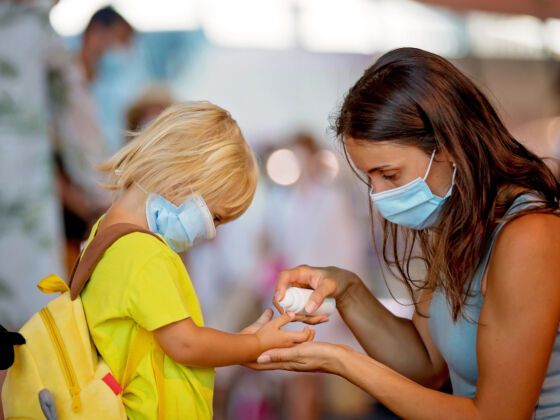It seems that the nasty, insistent virus that causes COVID-19 has found a loophole. As adults are increasingly vaccinated, it’s preying on the largest unvaccinated population: kids under twelve.
CDC records show that the only age groups that experienced increased hospitalization rates in early August were children aged one to four and five to 17. Parents are so desperate to get their kids under-12 vaccinated that thousands are on waitlists for clinical trials.
Where does that leave you, the vaccinated parent, hoping for some measure of normality and, quite possibly, a family trip together during the last warm days of summer?
The good news is that you don’t need to panic and, with precautions, your kids can still have a life closer to normal than they had a year ago.
